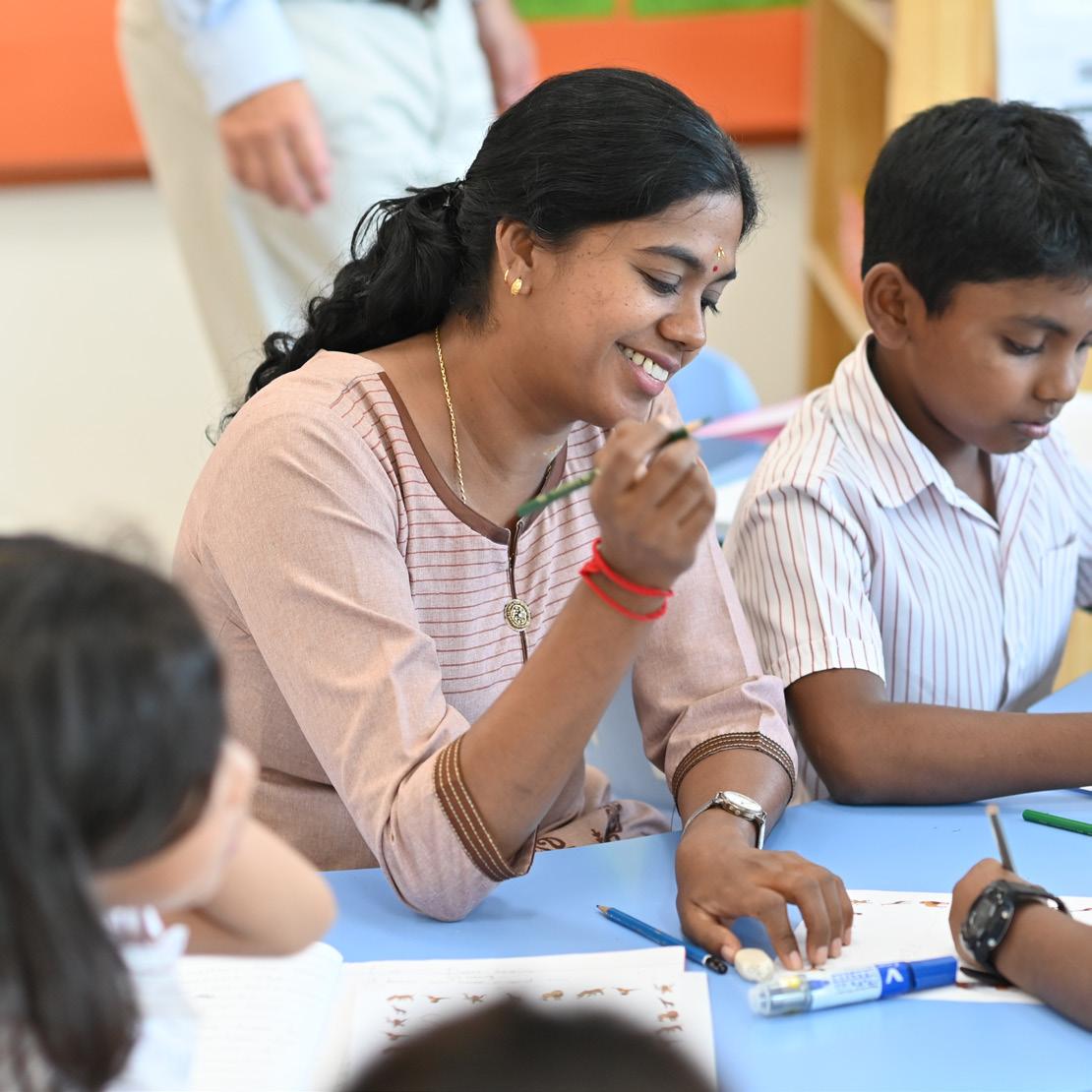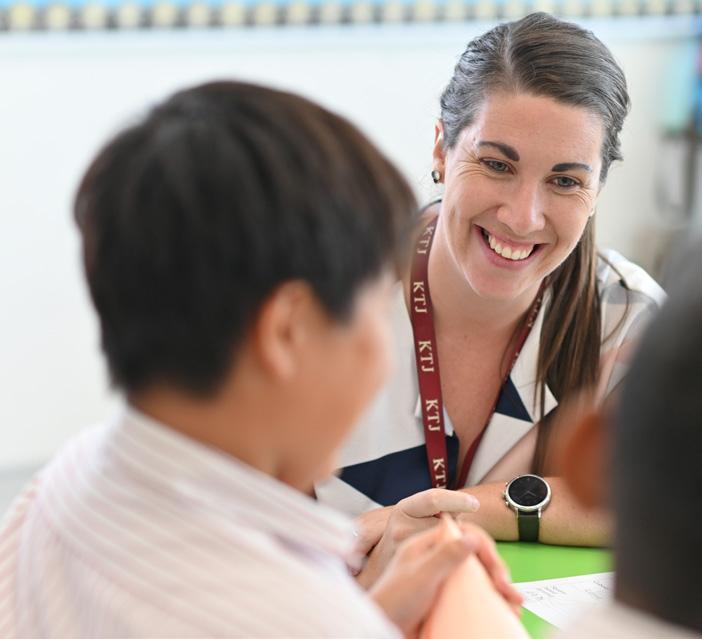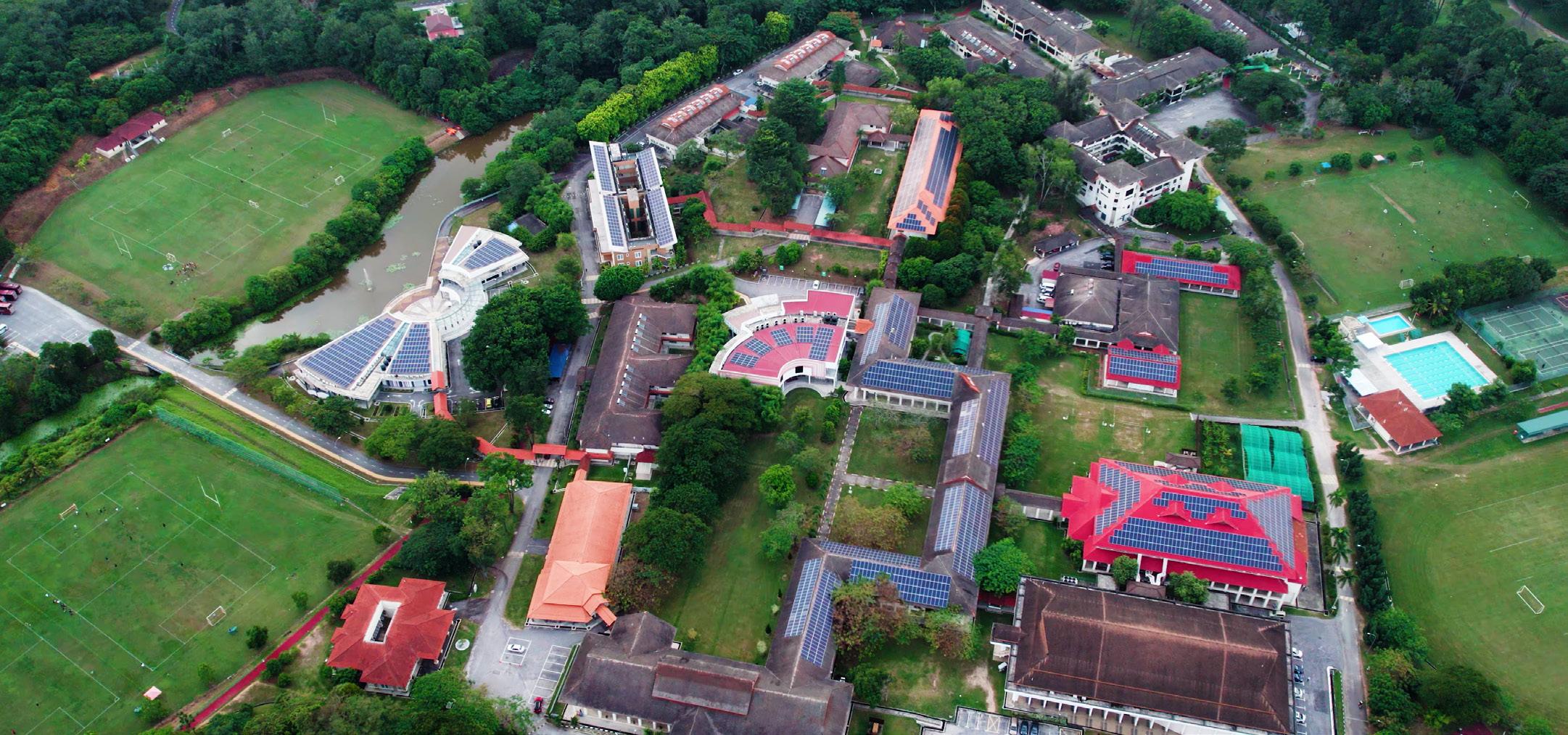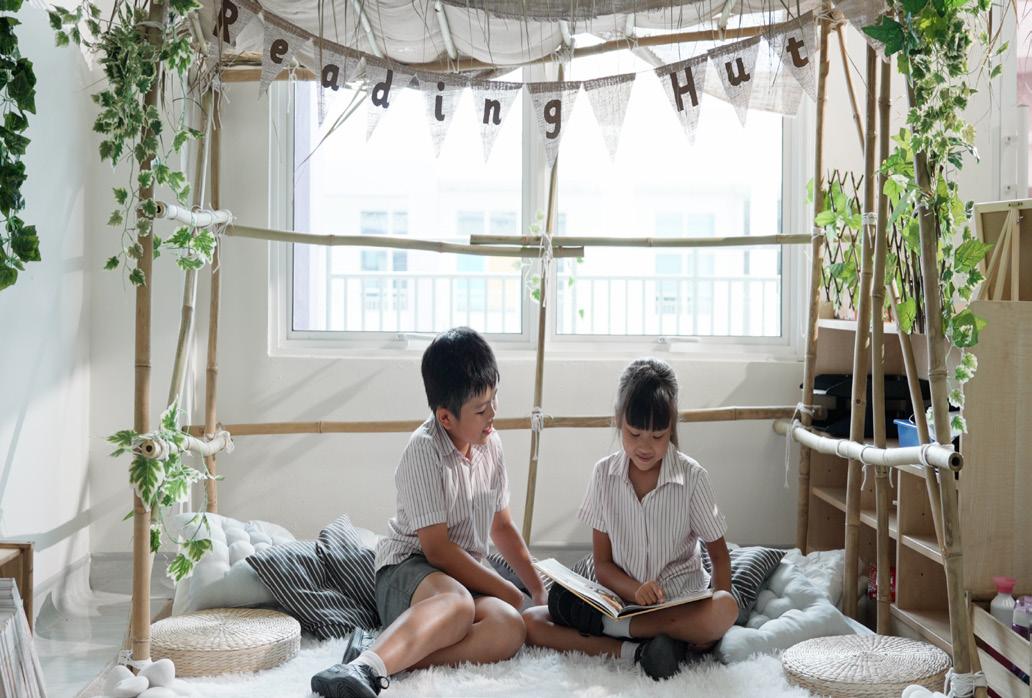



Recruitment





Recruitment

Thank you for your interest in working with us here at Kolej Tuanku Ja’afar (KTJ).
We are one of Malaysia’s premier international schools for students aged 3 to 19 years. We provide boarding from the age of 11 and enjoy a diverse student community, with young people from over 20 different countries across Asia, Europe, Australia and Africa.
Accredited by the Council of International Schools (CIS), KTJ operates as a charity, meaning all of our profits are channelled back into the School for the benefit of our community.
In the Secondary School, we have established ourselves over more than 30 years as one of the leading British-style, co-educational boarding school in Malaysia, with over 800 secondary students aged 11 to 19. Our Secondary students study the Cambridge IGCSE and A Level programmes. The School underwent successful re-accreditation with CIS in September 2020.
In September 2013, we opened our state-of-the-art Primary School, which currently has over 200 students. Students in our Primary School study the British National Curriculum for Maths and English, alongside the International Primary Curriculum.
Boarding has always played a central role at KTJ and three-quarters of our Secondary students board. In 2021 KTJ was awarded ‘International Boarding School of the Year’ by BSA (Boarding Schools’ Association).
We provide our students with a happy, calm and secure learning environment, spread over 80 acres of beautiful Malaysian countryside in the state of Negeri Sembilan. We are located in the town of Mantin, which is an hour’s drive south of Kuala Lumpur and approximately 40 minutes from Kuala Lumpur International Airport (KLIA). The nearest large town is Seremban, which is a 30-minute drive away. A four-hour drive south will take you to Singapore and a four-hour drive north will enable you to reach Penang. The School boasts excellent facilities, and our Trustees recognise the need to continually develop and improve these.

What makes KTJ special is the students and the community spirit that exists within the School. Our students show true dedication to and motivation for learning, which makes teaching at KTJ a highly rewarding experience. While academic excellence is at the heart of the School, we also value active involvement in sports and extra-curricular activities and a number of students participate in sports and performing arts at the highest level. All of our staff play an important role in this aspect of our school life. In addition to our academic and extra-curricular programmes, we also provide a high level of pastoral care and support, as well as offering EAL, Learning Support and counselling.
KTJ is a wonderful place to live and work and this is reflected in the large number of long-serving staff amongst our teaching body. There is a real sense of collegiality and staff get together outside of work to socialise, to play sport and to have fun.
International staff tend to use holidays to travel throughout Malaysia and beyond. KLIA is the main hub for Air Asia and therefore a huge range of destinations throughout Asia and further a field are within easy reach, at very reasonable prices.
Please do also have a look at our website ktj.edu.my, where you will find much more information about the programmes we offer and school life here at KTJ.


Everything we do at KTJ is underpinned by our Guiding Principles, our Vision, Mission and Values. Although we make sure we review these regularly so that they continue to be relevant in our changing world, at the heart, they remain the same as those developed by our Trustees when the school was founded in 1991. Throughout our recruitment and selection process we look for people who share our ethos.
Our vision is to be the school of choice in South East Asia, empowering students to become responsible leaders of a sustainable, global community.
Our mission is to nurture and inspire our diverse learning community, providing a holistic, Britishstyle day and boarding school education in a Malaysian setting.
Our core values are integrity, empathy and mutual respect.
The School year runs from August to July, and is divided into three terms, as follows:
Term 1: August to December.
Term 2: January to early April.
Term 3: Mid-April to early July.
Both the Primary and Secondary School teaching week is Monday to Friday, with the Secondary School offering Extra-Curricular activities and events on weekends. All staff are expected to be available to attend in a minimum number of Saturdays across the academic year.
Malaysia has 17 public holidays a year and school holidays are never far away. We have a midterm break in each term, as well as the longer end of term holidays.
In the Secondary School, the teaching days run as follows:
• 9:00 am - 4:00 pm on Mondays, Tuesdays, Wednesdays and Thursdays.
• 9:00 am - 4:10 pm on Fridays.
In the Primary School, our teaching week is Monday to Friday and the school day starts at 8:00 and finishes at 2:30 pm, with extra-curricular activities taking place until 3:40pm daily
In the Secondary School, extra-curricular activities take place before an after the teaching day.
All staff are expected to lead extra-curricular activities each week, with most taking two sessions.


Our Secondary School has almost 600 boarding students which makes it a vibrant and exciting place to work. It is a very busy, rarely quiet, but tremendously rewarding experience.
Activities for our students are scheduled in the evenings and at weekends. To maintain our boarding ethos, all Secondary staff are strongly encouraged to get involved and they are expected to help out with some of these events, each year, on a rotational basis. Many staff volunteer to run specialist events, trips or activities, in which they have a special interest.
In the Secondary School resident staff are also expected to undertake a small number of evening duties (two per term), to help supervise the students and to allow them to experience elements of boarding life. For those who are interested in getting more involved, there is the possibility of being trained to be a Relief Tutor, which is a great introduction into best boarding practice. Many Relief Tutors have gone on to be full-time boarding House Tutors who have significantly more involvement and commitments.
All boarding roles are recognised by an allowance relative to the roles and responsibilities undertaken.




Malaysia is a rapidly developing country where the cost of living is still relatively low and where standard of living can be high. In general, the cost of living is about 40% of the UK.
Salaries are determined based on experience and qualifications and are reviewed annually. International staff receive an overseas allowance of 30% on top of their salary.
Staff employed in boarding roles are provided with accomodation on-site with free utilities and meals at the school’s dining hall.
Other benefits include the following:
• Outpatient medical treatement for self and dependents as per entitlement.
• Hospitalisation and Surgical insurance as per entitlement.
• Term life and personal accident insurance for self.
• Free off-site accomodation and utilities.
• Substantial reduction in tuition fees at KTJ Primary and Secondary Schools for staff children as per policy.
• Employer’s EPF* contribution at a higher rate at 19%.
• Financial inducement at the start of the contract and for subsequent renewal if agreed.
• Freight provison at the start and end of contract.
• Annual flights to homebase for self and dependents.
• Support for further study and CPD.
• Staff can make use of the various school facilities, including the squash courts, swimming pool, and gym. Next to the School is a golf course, which offers discounts to KTK staff. More details of salary and benefits will be provided through the application process.
Please read our recruitment information pack carefully. Applications can be made by emailing: recruitment@ktj.edu.my.
You will need to provide the following:
• A completed KTJ application form (available on our website)
• An application letter
• Resume (inclusive of details of any gaps in employment).
• Details and email addresses of three referees, one of whom should be your most recent employer or principal
Appointments are subject to successful security and medical checks as well as satisfactory references. Expat staff appointments are also subject to successful employment pass applications.
*EPF (Employee’s Provident Fund) is a government savings scheme to which a percentage deduction is made from the employee’s salary with the employer paying a percentage. This derives dividends on an annual basis.
KTJ is an Equal Opportunities Employer and prohibits discrimination and harassment of any kind: KTJ is committed to the principle of equal employment opportunity for all employees and to providing employees with a work environment free of discrimination and harassment.
Kolej Tuanku Ja’afar is committed to safeguarding and promoting the welfare of children and young people and expects all staff and volunteers to share this commitment. Successful candidates will be required to provide an enhanced DBS check or other police checks, as well as suitable references from a current or most recent headteacher and a complete work history.
Malaysia is a beautiful and diverse country in South East Asia. It is made up of two regions, Peninsular Malaysia (West Malaysia) and Malaysian Borneo (East Malaysia), with thirteen states and three federal territories. Its capital city, Kuala Lumpur, or KL as it is commonly called, is a modern city and the economic and cultural hub of Malaysia.
Malaysia has experienced a relatively stable political and economic climate for decades and is seen to be one of the safest countries in which to work and live in this part of the world. It is a constitutional monarchy headed by a Yang Di Pertuan Agong (King). There is a democratically elected government, led by a Prime Minister and governed by a Cabinet.
Malaysia is a multi-ethnic and multicultural country with three main ethnic groups and several indigenous communities. The major ethnic groups in Malaysia are Malay, Chinese and Indian. The constitution grants freedom of religion, and the right to worship upheld. Islam is the country’s official religion with strong Christian, Hindu, and Buddhist traditions in many communities.
Malay is the official language of Malaysia, English is widely spoken and serves as an active second language. It is used extensively in business, education, and official correspondence. A majority of Malaysians, especially in urban areas, are conversant in English.



Living in Malaysia is as expensive or as cheap as you want to make it. The selection of Western and Asian foodstuffs and other household items is plentiful. There are lots of supermarkets and outdoor markets from which to buy fresh produce. Fruit is abundant all year round and is relatively cheap. Local food is very reasonably priced and one of the pleasures of being in Malaysia is to frequent the enormous number of restaurants and food stalls. By contrast, alcohol is relatively expensive. The cost of petrol is subsidised by the government and is therefore cheap (around £0.40 per litre).
All international staff are offered accomodation offsite in the nearby vicinity with the onsite accommodation predominantly for those with boarding duties. All accomodation, both on and offsite have standard furniture and most staff take advantage of the freight provision to bring personal effects such as kitchen items, books, pictures, sheets and towels. Onsite staff can take all meals in the Dining Hall during term time.
There is no charge for utilities or wifi for staff living onsite. Utility bills are also paid for offsite staff with the exemption of wifi.
The climate in Malaysia is pleasant all year round (29°C–34°C), although there is a relatively high level of humidity. There is little difference in temperature throughout the year and there are no distinct seasons, other than the wet season which runs from October to January but climate change has an effect on this. Lightweight clothing is adequate throughout day and night, unless you visit the surrounding hill resorts where it is cooler. Most buildings, including all classrooms in the School and all accommodation, are air-conditioned.

The nearest train station is only 10 minutes’ drive away and taxis, which are plentiful and cheap in comparison to the UK and Australia, can be used to move round. Grab, which took over Uber in Malaysia, is also available and can be a cheaper and more reliable option than taxis in some areas.
Most staff members choose to buy a car, with second-hand cars being available for RM 20,000 (£3,334). Cars of higher make and model cost more. Garage servicing is cheap, as are parts for Malaysian-made cars. Driving in Malaysia is not difficult, and is on the left-hand side of the road.
Long-distance bus services provide good, and incredibly cheap, connections to other parts of Malaysia and Singapore.
Healthcare in Malaysia is as good as, if not better than many other countries around the world. Malaysia has become a centre for health and medical tourism. There are excellent specialist clinics and hospitals. Members of staff are covered for visits to KTJ’s panel of doctors, as well as for hospitalisation and surgery.
The School has appointed various panel clinics in nearby vicinities, as well as a number of panel hospitals with excellent facilities for health care. Staff can gain admission to these hospitals for in-patient treatment and visit the School’s panel clinics for outpatient treatment. In addition to this, there is a medical centre on site for students and an in-house doctor who will also attend to staff.
All staff have a school email account and there is wi-fi access almost everywhere on site. Malaysia is technically advanced in the field of IT and PCs, laptops and peripherals are readily available at good prices. All staff are provided with school laptops.
We hope you have found the information in this brochure useful and that is has provided many of the answers to any questions you may have. If however, there is anything we have not been able to answer, please do get in touch with the HR Department: recruitment@ktj.edu.my.




